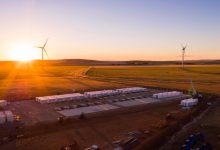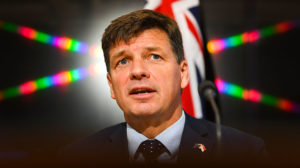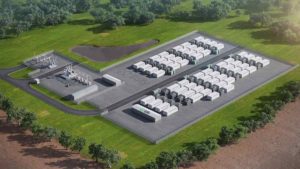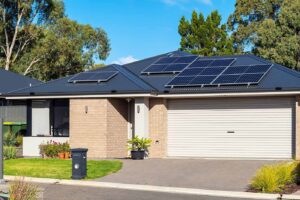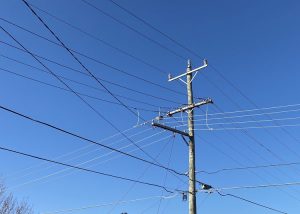French renewable energy developer Neoen says revenues at its Tesla big battery at the Hornsdale Power Reserve enjoyed a 56 per cent jump in revenues in the last quarter of 2019, primarily due to a jump in the value of frequency and ancillary services.
The jump was revealed in Neoen’s 2019 revenue statement released overnight, which also notes a 14 per cent rise in battery storage revenues over the full year. These revenues come almost entirely from the Hornsdale facility, which at 100MW/129MWh remains the biggest lithium-ion battery in the world.
The jump in revenues to record levels is not unexpected, given that it had been identified by the likes of the Australian Energy Market Operator in its Q4 Energy Dynamics report, but it is further confirmation that the battery is offering a quick payback for its French owners.
But those earnings may be dwarfed by the first quarter revenue, given that the effective “islanding” of the South Australia grid caused by storms that tore down the main link to Victoria has seen a surge in FCAS requirements and prices over the two weeks that the state was islanded.
One analysis, by Allan O’Neil in Watt Clarity, puts the potential FCAS revenue from the state’s big batteries over those two weeks at around $45 million, with at least half likely to have been captured by the Hornsdale battery. All three of the state’s batteries have been operating under the direction of the Australian Energy Market Operator for that period.
The Tesla big battery at Hornsdale, installed with much fanfare in less than 100 days in late 2017 after a Twitter exchange between Tesla CEO Elon Musk and Australia software billionaire Mike Cannon-Brookes, also benefits from a $4 million a year contract with the South Australia government to act as an emergency backstop for the grid.
Most of its revenues, however, comes from the FCAS market, which provides critical services to the grid. Some revenue is also earned from “arbitrage”, essentially buying low and selling at higher prices, or time shifting the output of the nearby wind farms.

Neoen’s revenue data shows a jump in storage revenues of 57 per cent to €6.9 million ($A11.2 million at current exchange rates) in the fourth quarter, and a 14 per cent rise in annual revenue to €20.5 million ($A33.2 million).
Over the year, solar revenue jumped 48 per cent thanks to the addition of new projects, including Nurmurkah in Victoria, (the only big solar farm in that state not to be heavily curtailed since late 2019) and others in France, while wind revenue rose just 3 per cent, partly due to poor wind conditions in the third quarter and the switch of some wind projects such as Hornsdale 3 from merchant pricing to less lucrative long term contracts.
CEO Xavier Barbaro said there was no doubt that the Hornsdale facility had been a “wonderful” success for Neoen, and for the South Australia grid because of the “valuable service” it brought to the gird’s operations. That will be enhanced, along with revenues, when the new 50MW/65MWh extension is completed in coming months that will provide “synthetic inertia” for the first time.
“We keep proving that what we do with lithium-ion batteries is the right solution and a competitive one for the grid. We are asked often to inject electricity for FCAS. it has proven to be well placed in terms of merit order in australia, and has dramatically reduced costs.”
“What we have managed to do in 2019 proves that we are well placed, and probably better placed than others to provide that type of service,” Barbaro said.
Neoen also noted that large-scale renewable energy certificate prices in Australia had been higher than expected, mostly because many projects had not been delivered on time as expected. Even Neoen’s Bulgana wind and battery hub is experiencing a 12-month delay in commissioning because of grid congestion issues in western Victoria.
“The price has not collapsed,” Barbaro told an analysts call. “We have managed to sell green certificates at very decent prices in past few months, we expect to see that again in next few months and maybe even the next few years. Many projects that were supposed to come on line in the last quarters have failed to be there on time.”
See also: Neoen to seek damages for delays to Bulgana wind and battery project in Victoria

